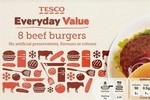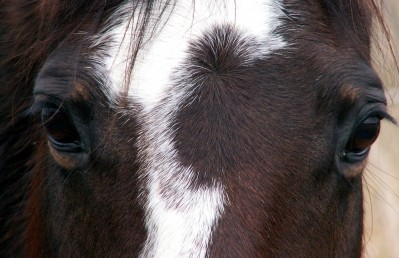Horsemeat webinar
Horsemeat webinar – highlights captured in quotes

Hilary Ross, partner with business law firm and webinar sponsor DWF
- “While our legal system is not a council of perfection, I believe overall, it is fit for purpose. To make it work and to make it practical for the retailers, food manufacturers and inspectors, we need to look at the gap that is science and to work out how we have a level playing field.”
- “I think it has made clear that the role of food safety and quality does not fall just to retailers and manufacturers. It’s a multi-faceted issue, in which everyone has to become involved.”
- “There is one glaring hole in my mind in relation to the EU strategy. We have overlooked the key role of science in helping the manufacturers, the retailers and the regulators deliver the outcomes required by the legislation. There needs to be testing methodologies that are agreed across the EU and agreed analytical limits in detection and quantitative methods.”
- “The bar [on due diligence] has undoubtedly got higher. Due diligence is a fluid legal concept and that has now changed in accordance with the crisis. Also, due to the crisis, companies are realising that legal due diligence compliance is not enough. What companies are looking at now is what due diligence looks like after the horsemeat crisis and how to protect the brand above and beyond legal due diligence.”
- “I don’t think they did – initially [responding to a question about whether the industry responded with a unified voice]. The issue arose so quickly and there was so much pressure to respond it was difficult to get together to have a unified approach.”
- “Secondly, I don’t think that would have been welcomed by the consumers or the politicians. It would look like they had been working together and once it became clear what had happened, there has been a unified approach through trade associations like the BRC [British Retail Consortium].”
- “There also has to be an agreed sampling methodology. Clients were reporting to me at the height of the scandal that inspectors were taking samples from open products from their fridges and stores which were about to be cooked. We cannot get sensible results from products that are open and are ready to be cooked. This is not something that is limited to the UK – it has to be agreed across the EU. We cannot have Member States working at different levels and in different ways as that would undermine the whole point behind the EU, which is for a level playing field.”
Andrew Rhodes, director of operations at the Food Standards Agency
- “For me, it is a greater awareness of the need to secure food supply chains – not to rely on contracts – and to check what’s in there [food and food ingredients].”
- “The due diligence bar has definitely moved. Instead of a reliance on contract, there is a need to prove that what you are buying is what you are actually getting. But how that works in practise will be an interesting thing to tell. And how sustainable some of those companies find those demands prove to be.”
- “The traceability immediately showed where the horsemeat had come from and it had come from approved slaughter houses. So, the issue here was really labelling and that’s how we can say we don’t believe there is a risk. However, if there is a possibility we couldn’t determine the origin of the meat, then we couldn’t rule out a food safety issue because then it has not been through all the appropriate checks and the full screening that animals normally go through before entering the food chain. But, in this case, we were able to demonstrate where these products had come from and, therefore, able to investigate the fraud.”
- “The practical advice small businesses can take is when buying products, look at the origins of the product, request the traceability, know where they are buying from, what the country of origin is and look at how that chain hangs together. Authenticity testing is only a small part of this. The vast majority of issues can be eliminated by understanding where these products have come from, who has bought them and where they have bought them from.”
- “I think industry, in general, responded very positively. I think initially everybody would have looked inwardly and asked themselves whether they had a problem not yet detected and that is an understandable reaction. I think it is true to say industry spokespeople were not particularly prevalent during the early weeks of this. Aside from Tesco initially responding to the problem in Ireland, industry spokespeople were largely absent in the beginning. Then they were spending an awful lot of time understanding if they had a problem and what the scale of that problem was and what they were going to do about it and I think that is quite an understandable reaction. But overall the reaction after that was very positive, very pacey and. And we were the first country to get a grip with what was on our shelves.”
Professor Tony Hines, head of food security ad crisis management at Leatherhead Food Research
- “Animal feed is the one area to which we all need to pay particular attention. In various parts of the world – as beef consumption increases as people become more wealthy – the need for animal feed will significantly increase. And that will increase the temptation for fraud.”
- “It’s [positive legacy of the crisis is] an awareness of fraud, our ability to horizon-scan around the world and risk mitigation and brand protection strategies.”
- “Managers should ask: where can most value be added and what is the potential for detection? What could be subject to bulk up or dilution? Is the product changed? Does it change visually? Is this ingredient expensive and are there routine tests?”
- “If you are involved in fraudulent activity, you don’t want it to be picked up and detected after the first week. It has to go on for a while, otherwise it is not economically viable.”
- “I think the bar [on due diligence] has been raised significantly. We are looking not just at our suppliers but our supplier’s suppliers. We are talking about shorter food chains, inspections, audits, far greater in-depth verification and absolute confirmation that what we are buying and using is what we believe it to be – so significant changes across the entire UK food chain.”
- “As far as product origin goes, everyone is now fully aware of their obligations. Everyone is horizon scanning – they are looking to mitigate the risks and a great deal of effort is going on with testing and process and its now very in depth.”
Kiti Soininen, head of Mintel’s UK food and drink research team
- “For me, the silver lining was undoubtedly the growth in interest and the growth in trust in British food at the moment. Those are things the British food industry can certainly look to tap into more effectively.”
- “The impact of the scandal was limited to a few product segments. According to IRI data, frozen red meat products were the hardest hit. Sales in this segment fell by about 15% in value terms and 17% in volume in the 52 weeks to March 2013 when compared with the same period of 2012.”
- “The horsemeat crisis has made consumers acutely aware of how long and complex food supply chains are today. And it has re-energised reactions to British food but changes to shoppers’ buying habits have been fairly limited. And the general sentiment at the moment seems to be that this was largely an isolated problem.”
- “British food has lost ground in terms of its image as being well regulated although promisingly there has been little impact on its image as safe. 33% of those surveyed thought British food was higher quality compared with 31% in December 2012.
- “More people see British food as authentic and as worth paying more for – 28% of those surveyed this March compared with 24% in December 2012.”
- “It is worth noting that even now, no single factor chimes with everyone, highlighting how fragmented the consumer food and drink market is and how it requires a tailored approach from brands in order to be relevant to consumers.”
- “In summary, the impact of the scandal in terms of individual product categories has been limited and in the light of historical data, could be short-lived. It has however seen more people turn to local and British food. For the industry to benefit from this level of industry it must overcome the widespread confusion and mistrust in food labelling.”
You can listen again to the free, one-hour webinar here.
Meanwhile, Food Manufacture’s Food Safety Conference takes place on Thursday October 17 2013 at the National Motorcycle Museum, Solihull, West Midlands.
More details about the conference – to be chaired by Professor Colin Dennis, former president of the Institute of Food Science & Technology (IFST) – are available here .
















